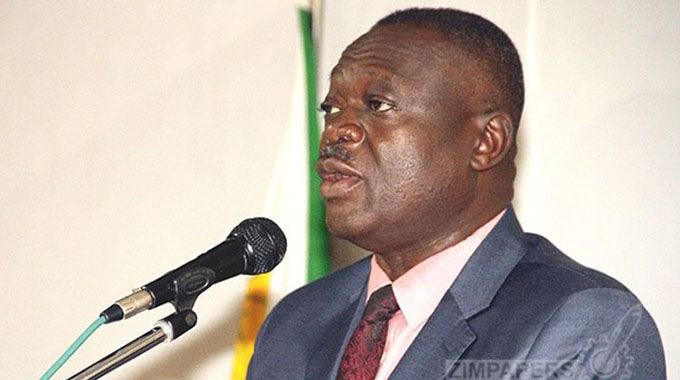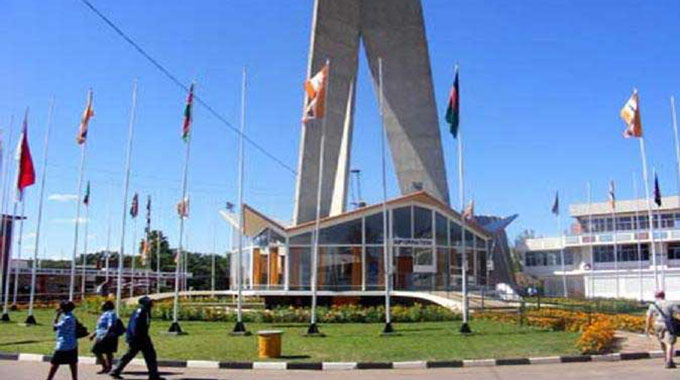How Mukanya formed Blacks Unlimited

Godwin Muzari Memory Lane
Thomas “Mukanya” Mapfumo’s journey in music has been long. It has had its twists and turns. He has encountered happy and sad moments in a career of more than four decades. Now a legend and revered singer, Mukanya’s beginning was a struggle, just like many musicians of his time.
Now he looks back and laughs at some of the tough situations they endured. As he went down memory lane on Wednesday in an interview at a local hotel, Mukanya told of his humble beginnings.
He remembered how they looked helpless as they washed their clothes in Odzi River as a band, wondering if they would make it with a bleak cloud that seemed to hover over their music aspirations.
It was in the late 1970s and they were based at a bar near Bezel Bridge, performing under the name Acid Band.
Acid Band had done a lot of shows in Harare and Bulawayo, among other places before they went to their base in Bezel Bridge.
He laughed when he recalled how they were left astounded and clueless when they lost their clothes and vinyl records as they went for a show. That was the time when Mukanya was beginning to mould Blacks Unlimited and it appeared as if a curse was trailing him. Things were not going as planned.
“When it became clear that things would not work out in Bezel Bridge, I heard that a new bar would be opened in Mutare. It belonged to a man called Mubaiwa.
“I approached him. He said they still had about two weeks to open it, but he allowed us to come and stay at the place rehearsing for the opening night,” Mukanya recalled.
“We ran away from our place in Bezel Bridge and relocated to Mutare. Our new place was called Zimunya Nightclub. However, after playing for the first weekend we were not paid. It was a Monday and guys sent me to Mubaiwa to get our money, but he told me he would only pay after many performances.
“The other guys were angry and they left. I stayed with Jonah Sithole and we decided to move on. I thought of forming another band. I sat down with Mubaiwa and told him I wanted to form a band — Blackmen Unlimited. He suggested the name Blacks Unlimited and that was how the name came about.
“He gave me money to travel to Harare to get other band members. I got Oliver Matamba and Lawrence Phiri.
“I also bought new clothes for the band and records that we would play for rehearsals because we were doing copyrights.
“As we took a bus from Mutare to Zimunya, our suitcase containing everything we had bought was placed on the bus carrier.
We were happy to go for the new mission and I knew our performance would convince Mubaiwa to pay us.
“However, when we got to Zimunya, our suitcase was not found. It should have fallen down somewhere along the way. I could not believe it. We had to walk a long distance backwards hoping that we could find it, but we could not. We sat down dejected.”
Mukanya said he knew Mubaiwa could not give him more money and he would probably not believe the story that the suitcase had fallen from the bus.
Because of the days he had spent in Mutare, he had made friends with a man who owned a clothing shop.
“I approached him and borrowed clothes and we also managed to raise money to buy new records.
“Things were back to normal and we proceeded with our shows at Zimunya Nightclub as Blacks Unlimited.”
However, things did not go according to plan and some band members were disgruntled. Jonah Sithole left Blacks Unlimited and went to join Great Sounds.
Mukanya realised that the Mutare contract would not be sustainable and he returned to Harare. By that time, Blacks Unlimited had changed beat to incorporate traditional elements that led to the birth of chimurenga sound.
“We came back to Harare and I approached my uncle Sekuru Bond who had given us instruments. He allowed us to rehearse at his house.
He is the one who told me about Oliver Mtukudzi and arranged our first meeting. Mtukudzi heard me playing ‘Rova Ngoma’ and he asked for permission to record it. He then did it in his own style.”
Mukanya had recorded the album “Hokoyo” in 1978 and his return to Harare meant he had to push his music through recordings.
He began to record more albums and making hits. The name Blacks Unlimited became big and Mukanya started pulling huge numbers to his shows. That was how the Blacks Unlimited journey, which is now a history of success, began.
Before Acid Band and Black Spirits, Mukanya had worked with groups like Hallelujah Chicken Run Band, Spring Fields, Cosmic Four Dots and Zutu Brothers.
Other names that were involved with Mukanya include Marshal Munhumumwe who was his uncle, James Chimombe, Joshua Dube, Leonard “Picket” Chiyangwa, Charles Makokobe and Sekuru Hozhwa, among others.
Mukanya said it all began in Mabvuku with Zutu Brothers.
“When I came to Harare from the rural area, I started hearing music on radio and I was excited with rock ‘n roll style. I was staying in Mabvuku where Zutu Brothers were based — I would do vocals and a bit of dances for them,” said Mukanya.
“When my family moved to Mbare, I would travel to Mabvuku to join them but I later got new groups in Mbare and that is when I joined Spring Fields.
“We continued with copyrights as I joined later bands.
“My upbringing in the rural area had taught me a lot about traditional African music and that is why I later changed the beat for my own compositions.”









Comments